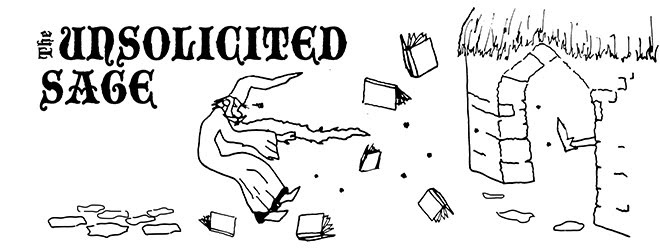On the whole, I like the flavor that each Power Source gives. I like being able to play a Shaman instead of a Cleric and have that decision mean something in how my character relates to the world. However, I understand my friend's point, and I certainly agree that the number of classes is getting somewhat extensive, perhaps even burdensome.
Fortunately, my friend did not simply complain about the state of the game, he made a suggestion. One that I thought held a lot of merit. So, with his permission (kind of) I am going to steal his idea and run with it. Instead of introducing more classes, create builds and selectable class features that alter a core class to fill a different party role. Clerics could sacrifice some healing in favor of damaging capabilities and suddenly you have a divine striker without having to bring in the Avenger. As an experiment in this vein, I've created rules for a "Martial Controller" build that doesn't add a class to the game, but instead uses on that is already there: the rogue. Here it is:
Mischief-maker Rogue
Any fool with a dagger can kill a man. It takes a true professional to sow discord amongst the ranks of his enemies. The talented don't need to kill with blades; they kill with misdirection, guile, and trickery. You have perfected the art of mischief-making, and through the mayhem you create, you bring your foes to their knees, where your allies can more easily dispatch them. You may not deliver the deep, life-ending blows so often associated with adventurers of your ilk, but your allies know your worth, and are just as happy to have you along. Your attacks use Dexterity, so make that should be your highest ability score. Charisma should be second highest because you still rely on combat advantage and using your force of personality to misdirect your foes' attentions. Strength falls third, because you rarely use brute force in a situation where speed and guile would suffice, but may find yourself in a corner and needing to fight "fair" for once.
Class Feature: Mischief-Making*
Suggested Feat: Distant Advantage** (Human: Far Shot)
Suggested Skills: Acrobatics, Bluff, Insight, Perception, Stealth, Thievery
Suggested At-Will Powers: Sly Flourish, Disheartening Strike***
Suggested Encounter Power: Impact Shot***
Suggested Daily Power: Blinding Barrage
*New option presented here.
** Presented in Arcane Power.
*** Presented in Martial Power.
Mischief-Making
If you choose this class feature instead of selecting Artful Dodger, Brutal Scoundrel, or Ruthless Ruffian, you also give up the Sneak Attack class feature. Instead, when you use a martial attack power that causes forced movement or imposes a condition on your target, you may make the attack against additional valid targets equal to the number of Sneak Attack dice you would normally have at your level. (e.g. A 3rd level Mischief-Maker rogue could choose to attack 3 targets within range with his Impact Shot power and could push all three assuming they were hit.)
There you have it, the "Martial Controller" Rogue. Turns out there are an awful lot of rogue powers that have a controller flavor to them, and if you expand the number of targets struck, the rogue suddenly fits the bill pretty well.
WARNING: DO NOT use this build if you are expecting the rogue to be the group striker. This is not a striker build, and therefore changes drastically the expectations upon a rogue.
Lastly, I got my hands on the DMG2 and Primal Power finally. I can say that I am quite happy with the attention "fluff" is getting in these newer books. In terms of straight crunch, both books are adequate, well designed, and seem to add some significant options for most classes (or campaigns in the case of DMG2.) My DM asked me what I thought of Primal Power stacked against other Power books and I'll just throw out this bit for you guys: unless you are playing a primal power source class in a campaign currently, I would wait until you are to snag Primal Power. It's great stuff, but not terribly useful outside of its direct sphere. Martial Power and Arcane Power seemed to be more broadly applicable. That said, the book is good, and well worth the cost if you can put it to use for you.
Next week: I think we'll take a look at the ranger and see if we can't make a controller build out of that class, in case your rogue player isn't interested!

That rogue class feature is actually a pretty excellent idea. Additionally, I like the flavor of a rogue that stymies a group of pursuers while he makes a daring getaway--moreso than say, a rogue who assassinates one foe at a time with the help of his muscle bound accomplice to provide flanking. Looking forward to the ranger!
ReplyDelete